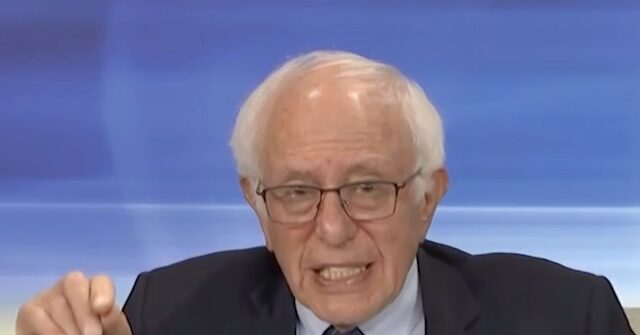In a recent appearance on NBC’s “Meet the Press,” Senator Bernie Sanders (I-VT) expressed concerns about the potential influence of billionaire Elon Musk within the U.S. government if former President Donald Trump were to win the upcoming presidential election. Sanders emphasized the alarming prospect that Musk, who is a major government contractor and holds significant security clearance allowing him access to classified information, could substantially shape government decisions. The senator raised serious questions about Musk’s ongoing communication with Russian President Vladimir Putin, as reported by the Wall Street Journal, and suggested that these relationships could lead to conflicts of interest.
Sanders, responding to host Kristen Welker’s inquiry about the appropriateness of Musk’s dealings, affirmed that he found them troubling. He pointed out Musk’s unique position of power and wealth, describing him as a “very smart, aggressive” individual who could have far-reaching implications for governance. The senator’s comments reflect a broader concern regarding the intertwining of corporate interests and political power, particularly in the context of highly lucrative federal contracts that Musk oversees.
The senator continued to articulate his fears about a potential Trump presidency, suggesting that Musk’s extensive involvement in Trump’s campaign financing raises serious ethical concerns. Sanders warned that the significant political contributions Musk has made could establish a precedent for an alarming overlap between corporate influence and governmental authority. This concern becomes increasingly pertinent with the potential for Musk to either lead government actions or exert ominous influence over presidential decisions.
Furthermore, Sanders’ characterization of Musk’s financial and political maneuvers paints a picture of a concerning landscape where the wealthiest individuals hold disproportionate sway over governmental processes. He raised the idea that if Trump were to return to the presidency, it could lead to an unprecedented dynamic where business interests, particularly those of figures like Musk, might overshadow democratic principles and governance.
The senator’s remarks resonate with broader public anxieties about the relationship between wealth and political power in America, especially given Musk’s prominent role in various sectors, including space technology and electric vehicles. This convergence of interests raises critical questions about accountability, transparency, and the political motivations behind such close ties to foreign leaders, which could undermine national security interests.
In summary, Sanders’ commentary on the potential implications of Elon Musk’s connections and contract work underscores a significant concern regarding the intersection of corporate power and governance in the U.S. As the political landscape evolves, these issues will likely fuel ongoing conversations about ethics in politics, the role of wealth in shaping policy, and the importance of safeguarding the integrity of governmental institutions against undue external influence.

